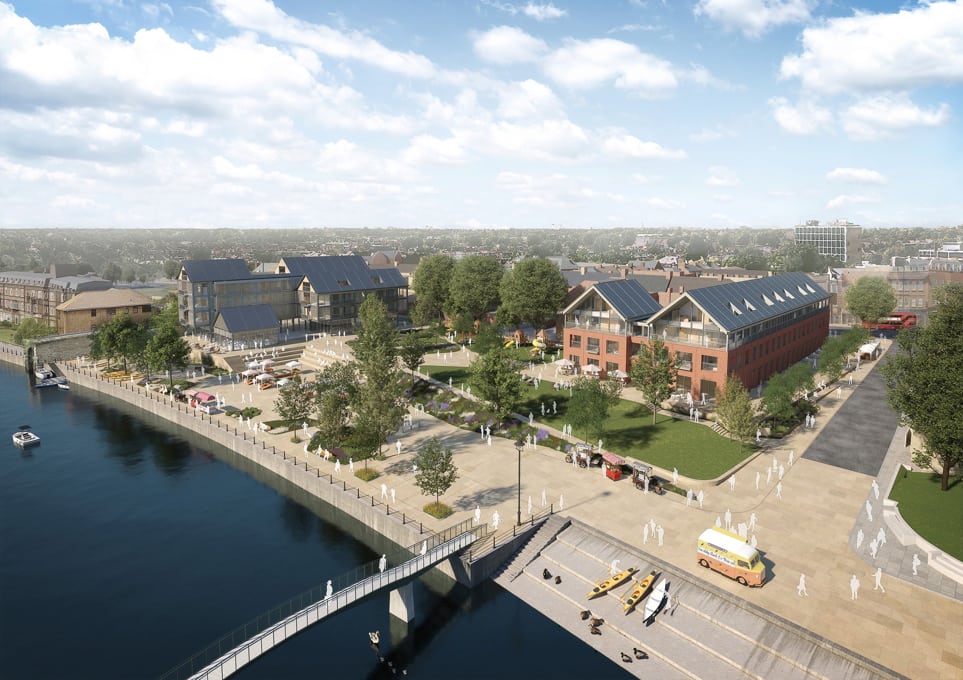
Objection Handling: Strategies for Overcoming Hurdles in Planning Applications
Navigating planning applications can feel like walking through a maze. Rejections, objections, and requests for additional information often slow progress, leaving applicants frustrated. Yet, with the right approach, hurdles can transform into opportunities to strengthen your case and secure approval. Effective objection handling focuses on preparation, communication, and strategic responses that address concerns without delay.
In this blog, we outline actionable strategies to overcome obstacles in planning applications and increase the likelihood of approval.
Key Takeaways
- Categorize objections early to plan effective responses.
- Engage neighbours and stakeholders before submitting applications.
- Strengthen proposals with thorough supporting documents.
- Respond promptly, professionally, and with evidence.
- Collaborate with experts to resolve technical concerns.
- Adjust designs to reduce potential objections.
- Maintain clear communication with planning authorities.
- Track responses and deadlines carefully.
- Use negotiation to resolve subjective disputes.
- Learn from previous applications to avoid repeat issues.
Recognize the Types of Objections Early
Objections in planning applications fall into distinct categories. Identifying these early allows you to address them before they escalate.
-
Neighbour Concerns – Complaints from neighbours often focus on privacy, noise, or visual impact. These objections can delay applications if not handled promptly.
-
Environmental Issues – Local councils may raise questions about biodiversity, flooding, or pollution.
-
Regulatory Non-Compliance – Planning authorities check if your proposal meets zoning, building, or heritage rules. Failure to comply triggers formal objections.
-
Community and Public Interest – Some objections reflect broader community concerns about traffic, infrastructure strain, or urban design impact.
By classifying objections at the start, you gain clarity on which responses require technical reports, community engagement, or design modifications.
Related Blog:- Step-by-Step Guide to Applying for Change of Use Planning Permission
Engage Stakeholders Proactively
Engagement prevents misunderstandings from turning into formal objections. Contact key stakeholders—neighbours, council officers, or local groups—before submitting your application. This approach allows you to:
- Clarify intentions and design features.
- Address potential complaints early.
- Build goodwill that can positively influence decision-makers.
Proactive engagement reduces the chance of last-minute rejections and positions your application as transparent and community-minded.
Prepare Strong Supporting Documents
A planning application succeeds when it includes precise, well-supported evidence. Objections often target weak or incomplete submissions. Strengthen your application by:
- Providing clear site plans and architectural drawings.
- Including environmental assessments, such as noise studies or flood risk reports.
- Supplying heritage impact statements if your project affects listed buildings.
- Adding traffic or parking analyses when necessary.
Comprehensive documentation signals that you anticipate concerns and respond to them professionally.
Respond Professionally to Objections
Once objections arise, handle them without delay. Responding effectively requires:
-
Acknowledgment – Recognize each concern respectfully. Ignoring objections signals disregard.
-
Clarity – Provide clear, concise explanations supported by evidence.
-
Alternative Solutions – Offer adjustments or compromises to address objections. For example, adjusting window placement can reduce privacy concerns.
-
Timeliness – Submit responses within deadlines. Late replies can prolong the process or lead to rejection.
Professional responses demonstrate competence and increase confidence among planners and decision-makers.
Collaborate with Experts
Some objections require technical expertise beyond the scope of a standard application. Hiring professionals, such as planners, architects, or environmental consultants, ensures that objections receive accurate, credible answers.
For instance:
- Structural engineers can resolve safety or stability objections.
- Environmental consultants can address ecological concerns.
- Traffic planners can propose effective mitigation strategies.
Expert input reduces uncertainty and shows decision-makers that your application stands on solid foundations.
Implement Design Adjustments
Many objections stem from perceived negative impacts. Minor design tweaks can turn a contested application into an approved one. Examples include:
- Reducing building height to maintain sightlines.
- Relocating windows to limit overlooking neighbours.
- Adding landscaping to buffer noise or visual impact.
- Modifying materials to preserve heritage character.
Proactive design adjustments demonstrate flexibility and a willingness to cooperate with planning requirements.
Communicate Clearly with Planning Authorities
Transparent, respectful communication with council officers improves approval chances. Studio20 Architects encourages applicants to:
- Addressing officer feedback directly and with evidence.
- Keeping correspondence professional and focused on facts.
- Scheduling meetings when complex issues arise.
Maintaining a positive, solution-oriented relationship prevents misunderstandings and accelerates decision-making.
Track Responses and Deadlines
Planning applications often involve multiple rounds of objections and replies. Keeping an organized log helps you track:
- Submitted documents.
- Received objections.
- Dates for formal responses.
- Required follow-ups.
Staying organized reduces the risk of missed deadlines, which can halt or reject an application unnecessarily.
Use Negotiation Techniques
Sometimes objections arise from subjective concerns rather than technical issues. Negotiation can resolve these disputes. Effective techniques include:
- Listening Actively – Ensure objectors feel heard.
- Finding Common Ground – Identify solutions that satisfy both parties.
- Offering Compromises – Small concessions often prevent larger conflicts.
Negotiation often prevents objections from escalating into formal appeals.
Learn from Previous Applications
Past applications provide valuable insights into common objections and council priorities. Reviewing decisions helps you anticipate concerns and adjust proposals proactively.
- Identify patterns in refusals for similar projects.
- Note which evidence persuaded planners in past approvals.
- Apply these lessons to strengthen current submissions.
This approach saves time and increases approval probability by avoiding repeat mistakes.
Frequently Asked Questions (FAQs)
What is the most common reason for planning application objections?
Neighbour concerns about privacy, noise, and visual impact rank highest. Environmental and regulatory compliance issues also trigger objections frequently.
Can a planning application be approved even with objections?
Yes. Councils often approve applications after objections are addressed through design adjustments, evidence, or negotiation.
How quickly should I respond to objections?
Respond promptly, ideally within the time frame specified by the council. Timely responses prevent delays or automatic rejections.
Should I hire experts for every planning application?
Not every application requires experts, but technical or complex objections often benefit from professional input, which strengthens your case.
Can early stakeholder engagement reduce formal objections?
Absolutely. Speaking with neighbours, local groups, and council officers beforehand helps identify concerns early and fosters cooperative relationships.




